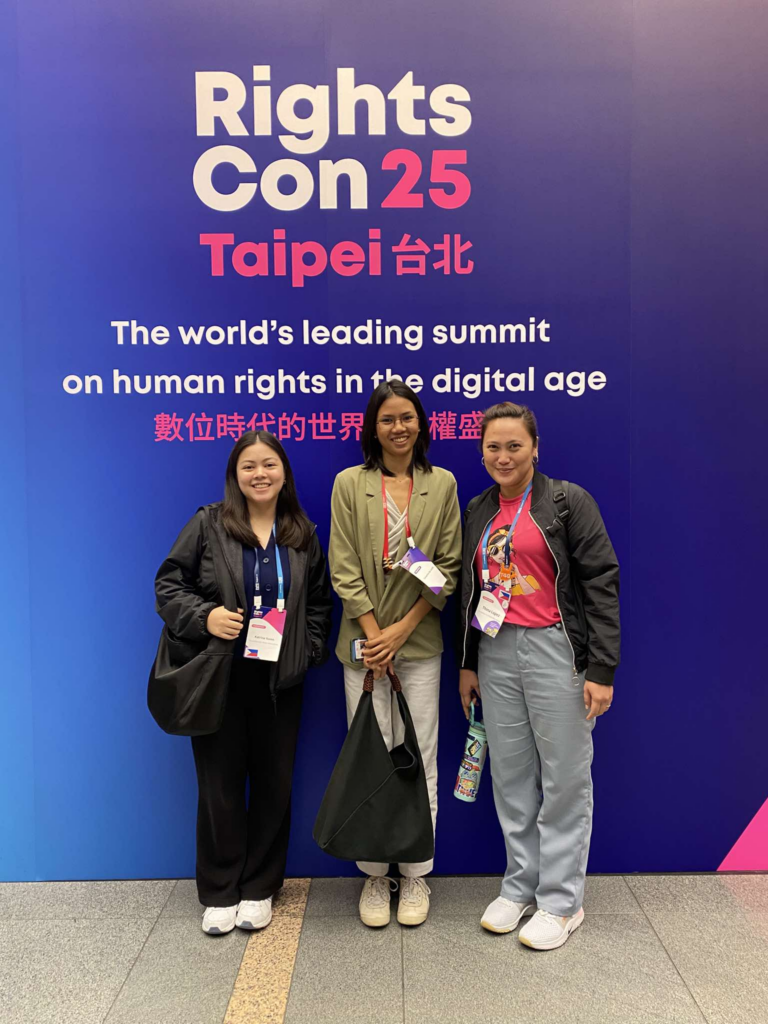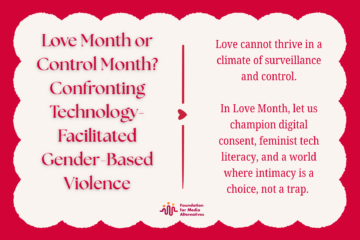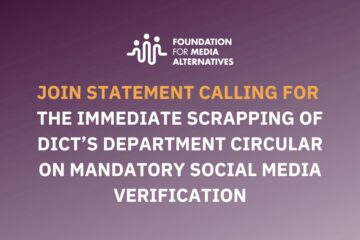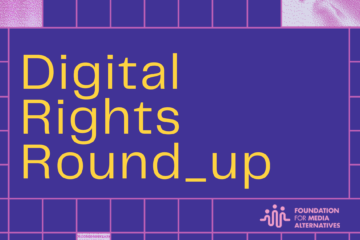Digital Rights in Southeast Asia After 10 Years: A Reflection from a Gender Rights Advocate

Ten years ago, the Foundation for Media Alternatives (FMA) co-hosted RightsCon Southeast Asia in Manila in 2015. That event marked my first exposure to a global conference of this nature and my first encounter with the concept of digital rights. At the time, net neutrality was a hot topic, especially when Facebook (now Meta) launched its Free Basics initiative in developing countries. While net neutrality may not directly address gender disparities in tech, it can lead to an inclusive digital environment by ensuring equal access to online tools, learning platforms, and forums that empower women and girls.
However, the initiative sparked major debate among stakeholders who believed it violated the principle of an open and equal internet. Additionally, for women and other vulnerable groups, net neutrality alone does not address the deeper issues contributing to the digital gender gap. Privacy concerns also arose, as the Free Basics program could collect data on its users.
A decade later, attending RightsCon again made me realize just how rapidly the digital landscape has evolved. Many of the digital rights concerns raised in 2015 remain relevant, but as our reliance on technology grew, the focus has shifted toward protecting rights amid emerging technologies such as artificial intelligence (AI).
As I participated in multiple sessions during the four-day event, I was particularly engaged in discussions on gender, AI, and elections. One session explored the rise of digital defamation campaigns targeting women and gender-diverse individuals in politics. Another highlighted the increasing use of deepfake technology to delegitimize public figures, underscoring the urgent need for policy interventions and survivor-centered solutions.
I also attended a session tracing the history of intimate-image abuse, starting with the now-defunct website IsAnyoneUp?—a platform infamous for distributing stolen or leaked intimate images of women in the early 2010s. While intimate-image abuse is a global issue, its manifestations differ across contexts. For instance, modified photographs have been weaponized to discredit female politicians, forcing many to abandon public office. This underscores how tech-facilitated gender-based violence not only endangers individual safety but also suppresses voices in public and political spheres.
Last 2022, FMA’s intern published a blog on gendered disinformation, specifically examining how women are disproportionately targeted online with harassment, abuse, and coordinated disinformation campaigns. The insights from this work, along with discussions at RightsCon, reaffirm the persistent threats faced by politically outspoken women in digital spaces.
In the next ten years, new technologies will continue to emerge—some offering opportunities, others posing risks to vulnerable communities. However, as long as platforms like RightsCon exist, there will always be spaces for advocacy, dialogue, and solutions to make the digital world safer and more equitable for everyone.



0 Comments